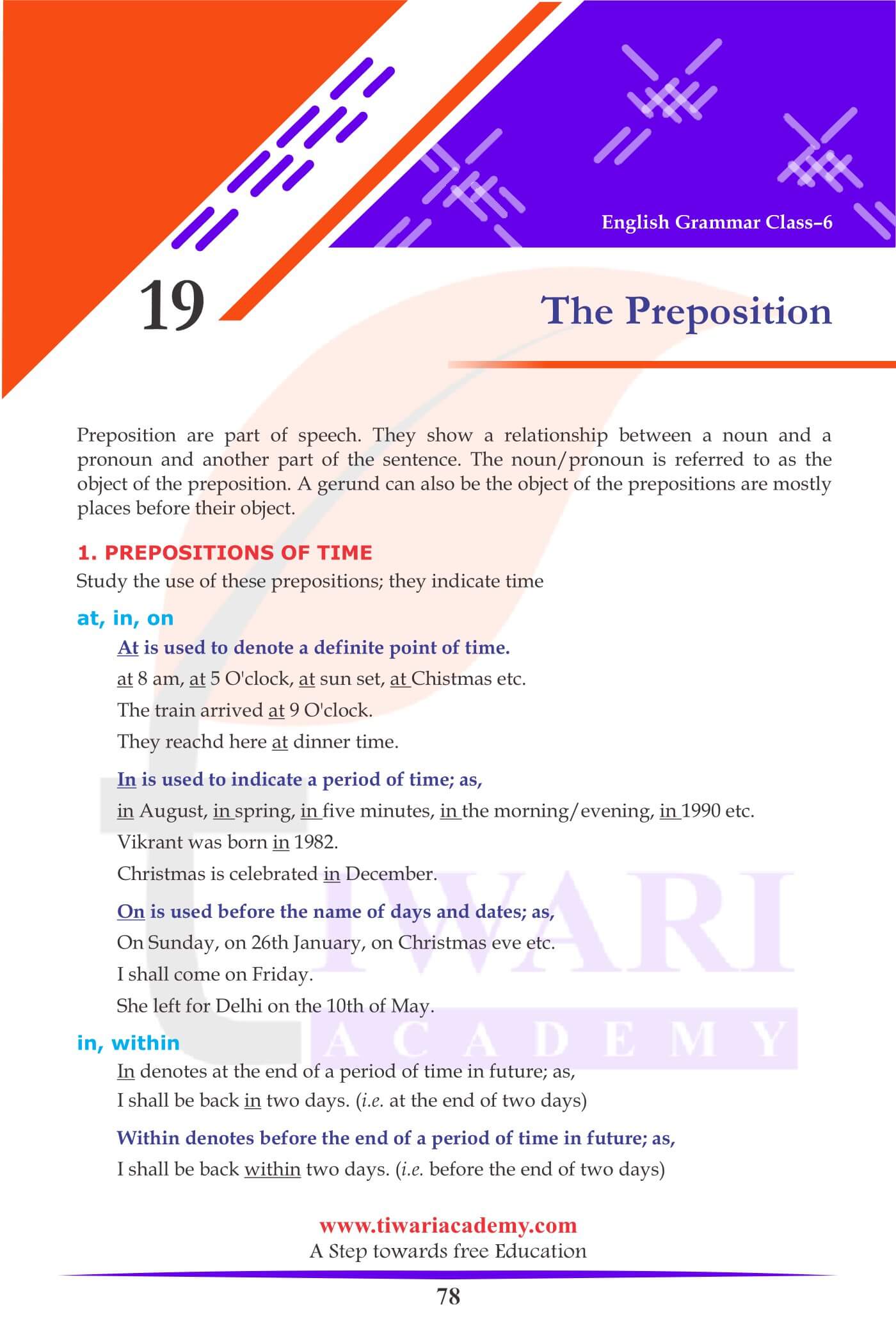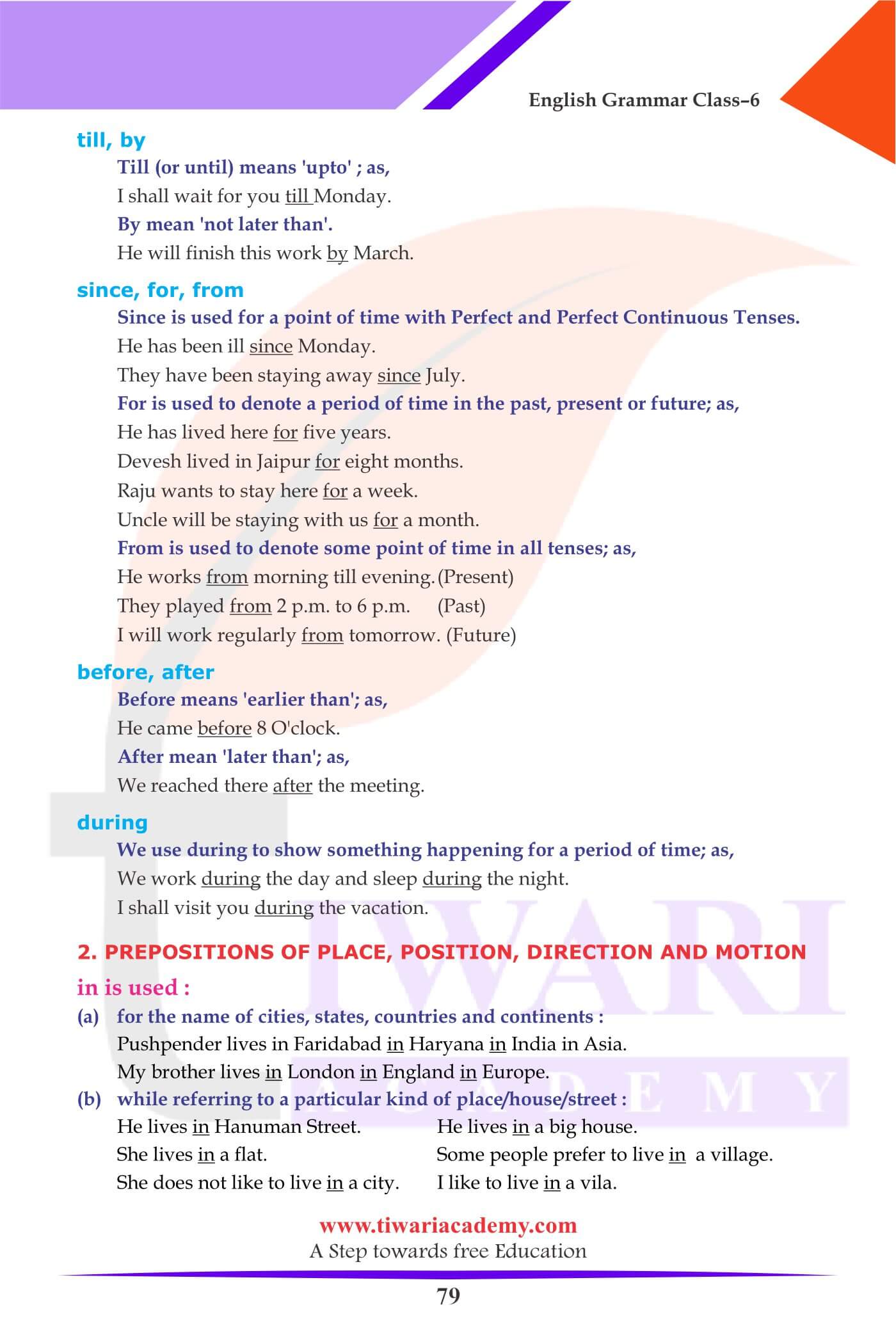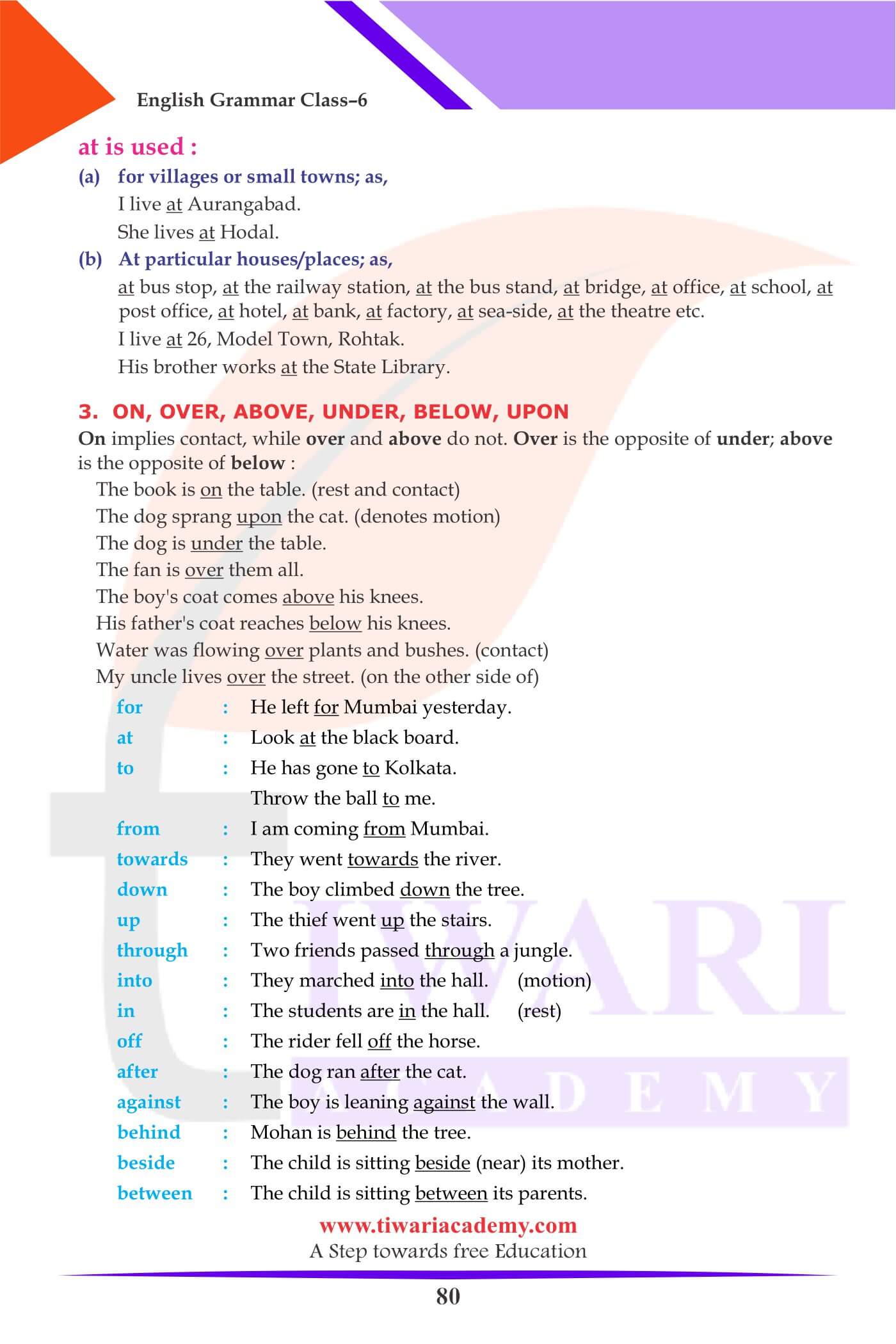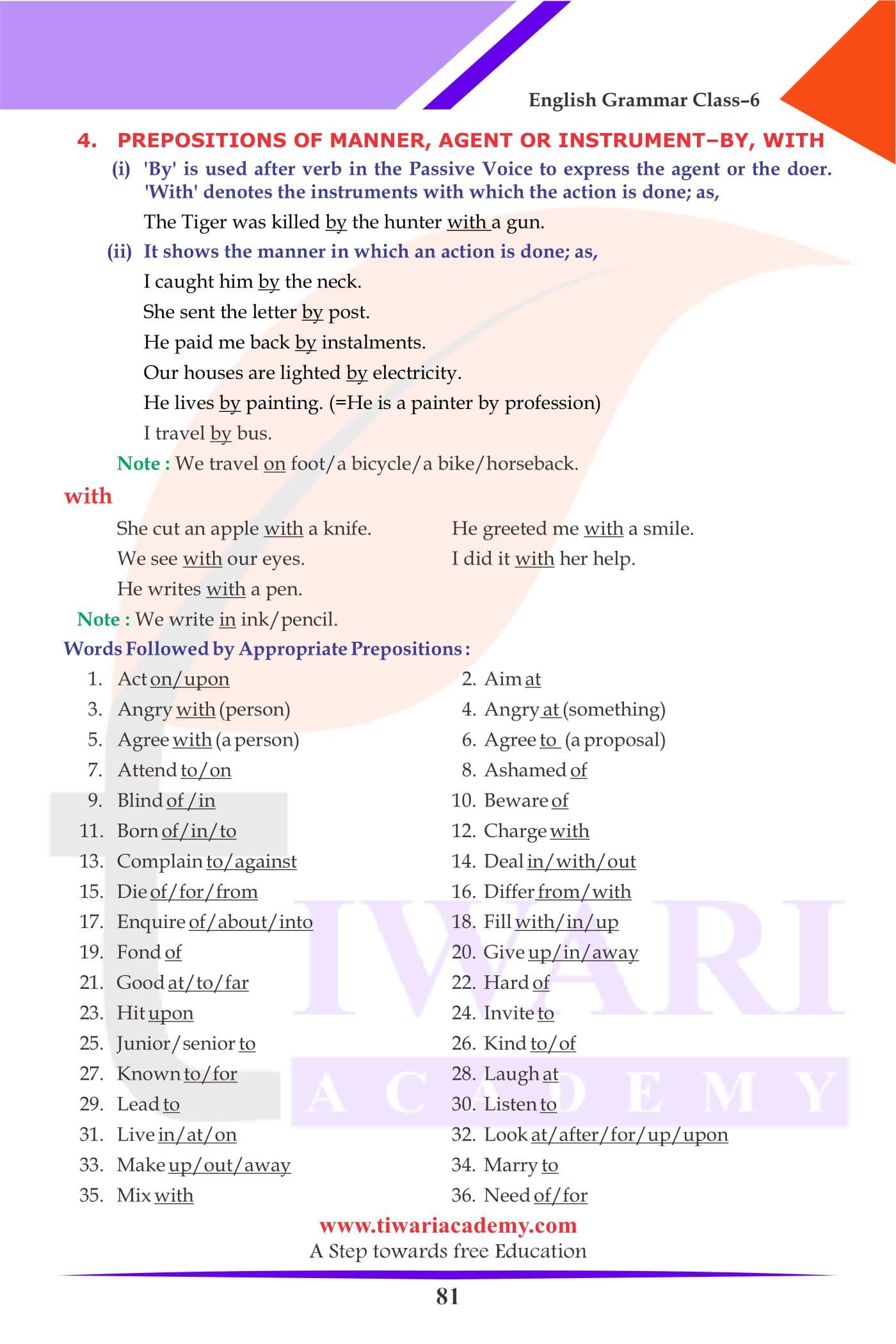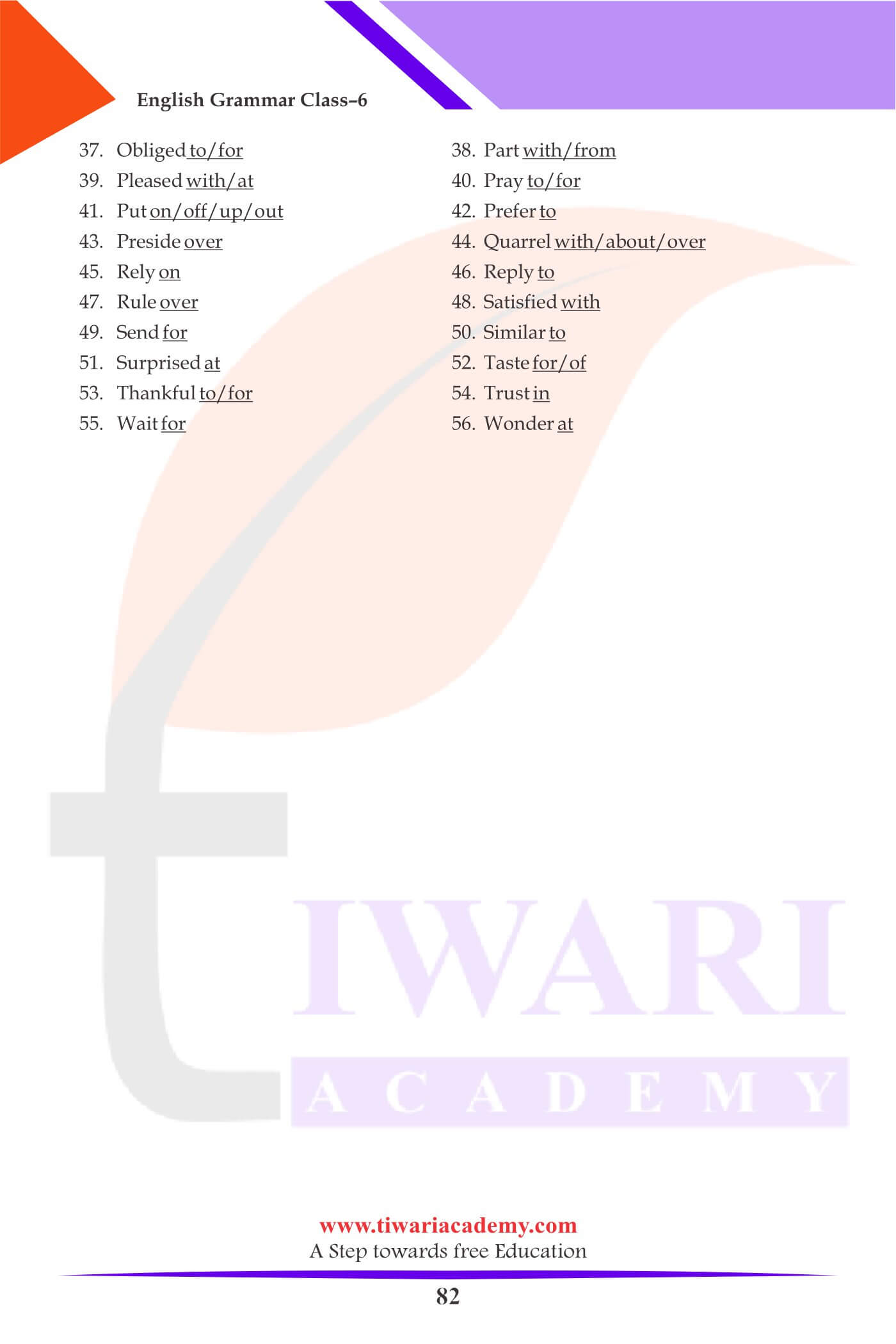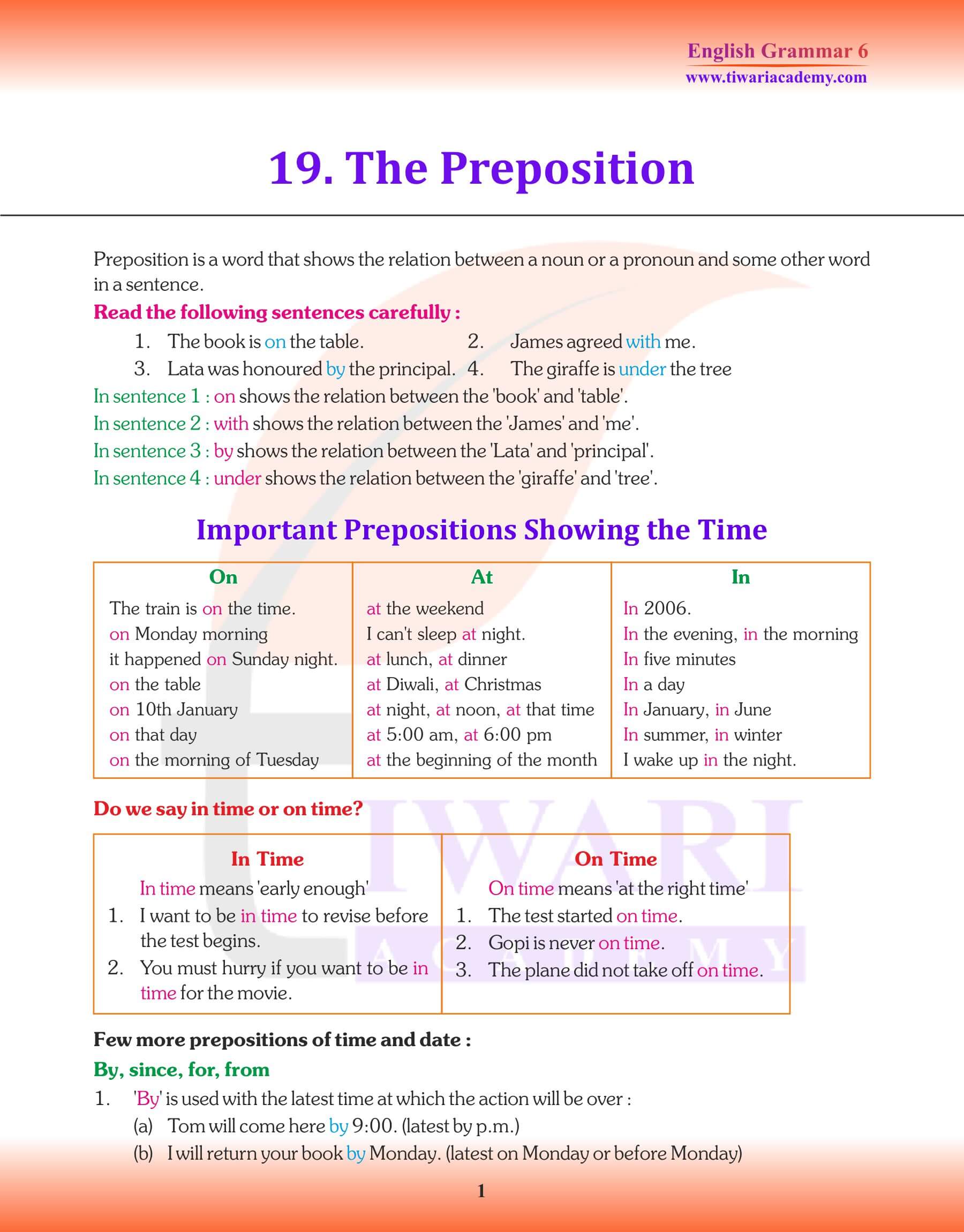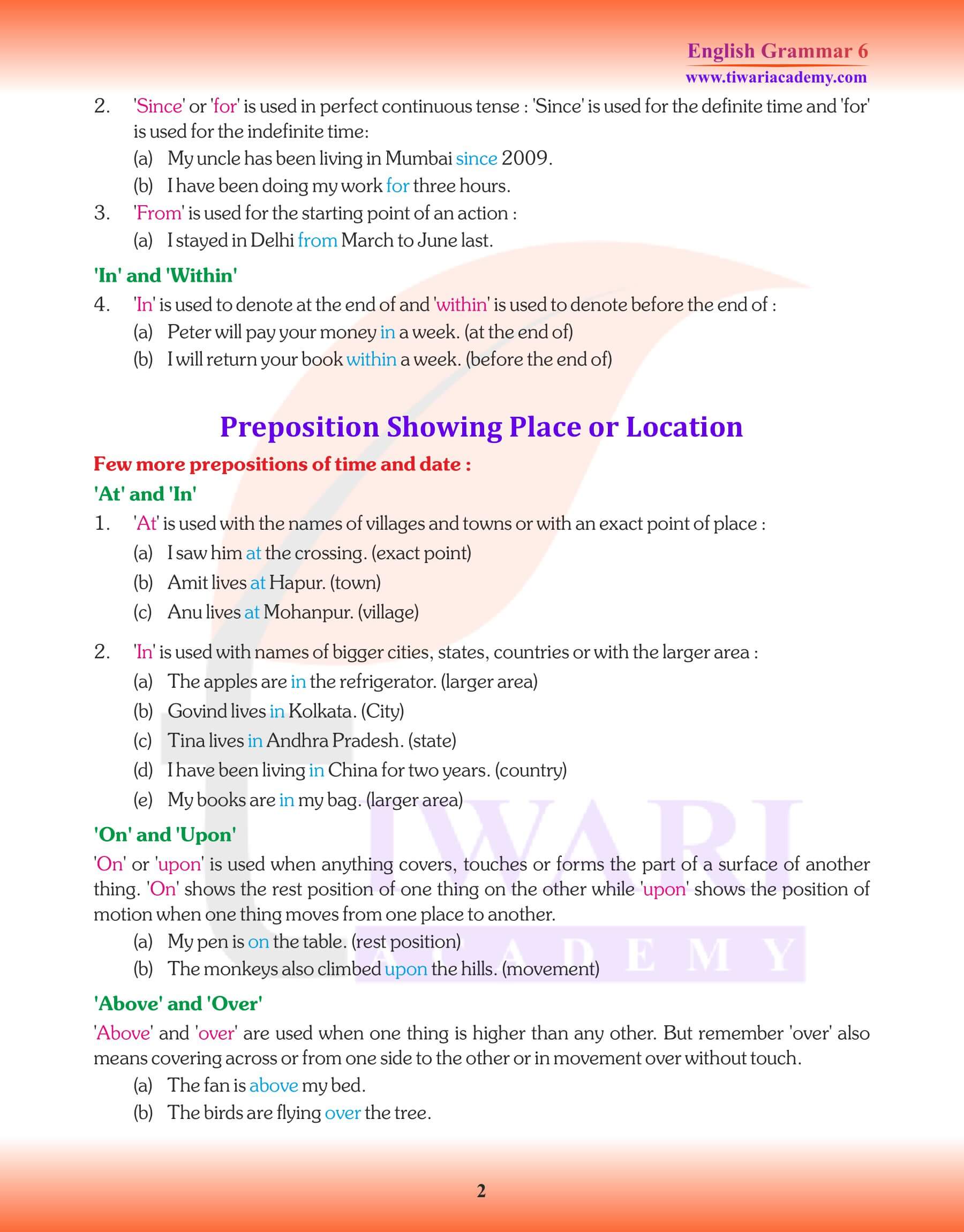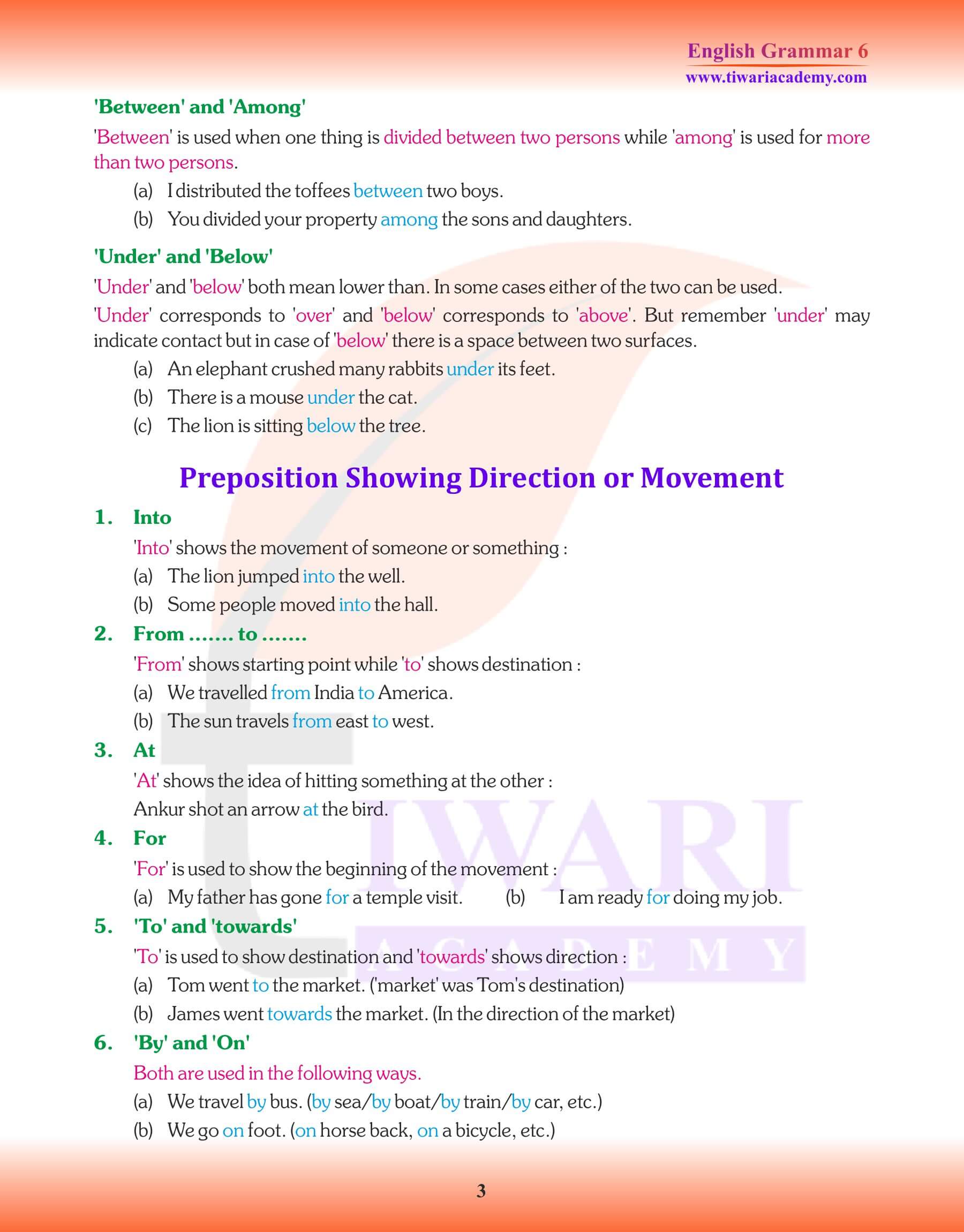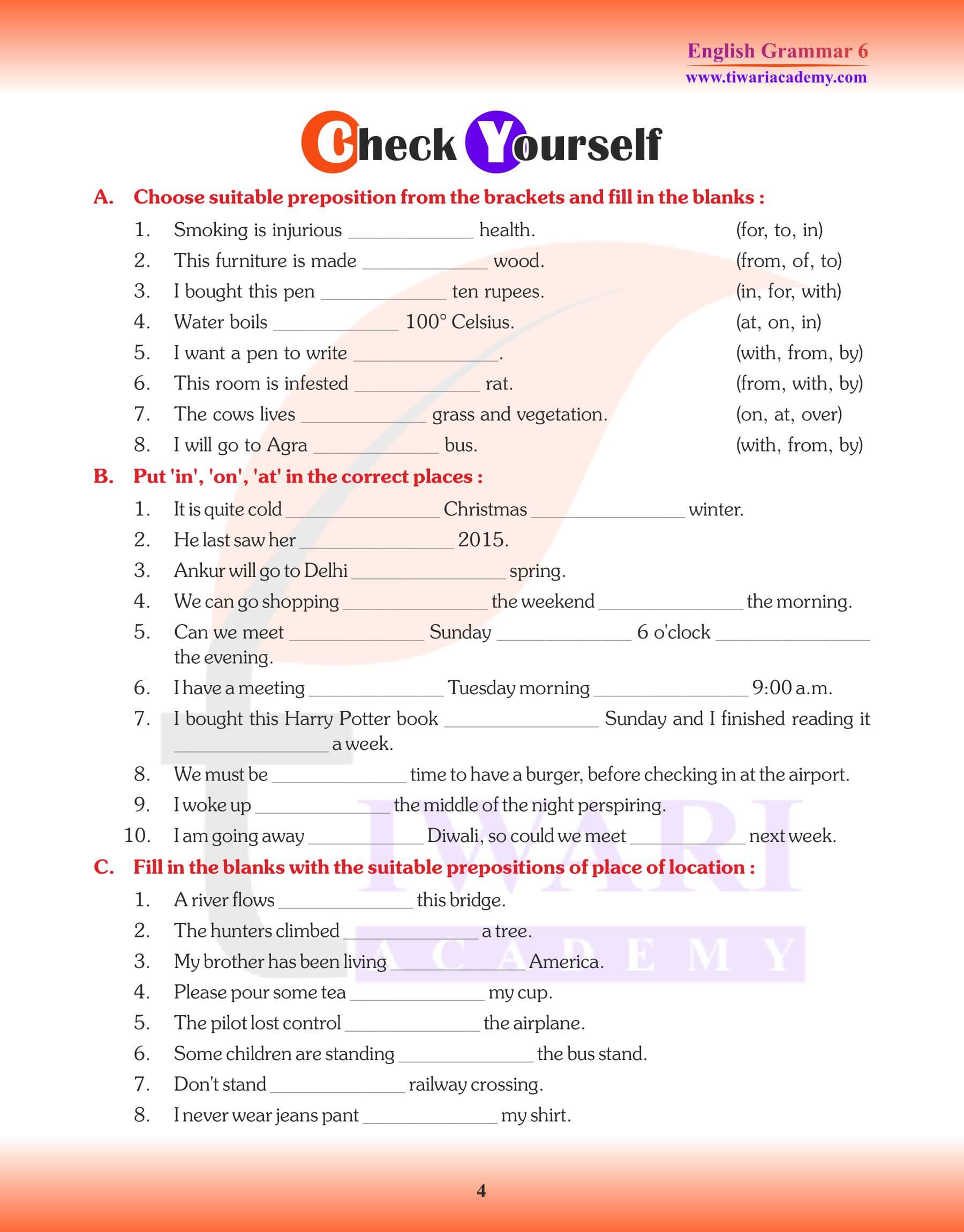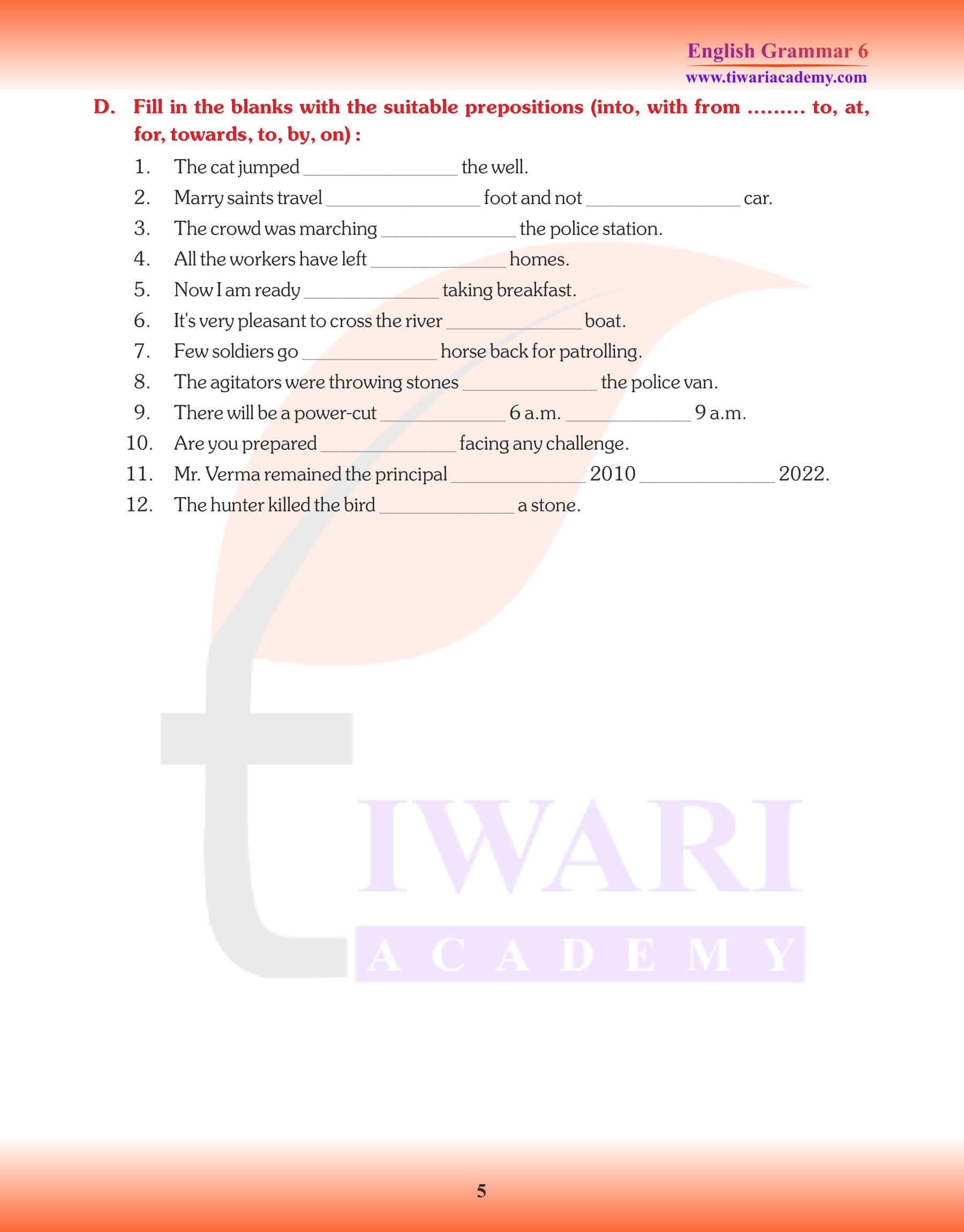Class 6 English Grammar Chapter 19 the Preposition. As we know that Preposition are part of speech. They show a relationship between a noun and a pronoun and another part of the sentence. The noun/pronoun is referred to as the object of the preposition. A gerund can also be the object of the prepositions are mostly places before their object.
Class 6 English Grammar Chapter 19 the Preposition for 2025-26
| Class: 6 | English Grammar |
| Chapter: 19 | The Preposition |
| Study Material: | Textbook and Revision Book |
| Academic Year: | 2025-26 |
The Preposition
Preposition are part of speech. They show a relationship between a noun and a pronoun and another part of the sentence. The noun/pronoun is referred to as the object of the preposition. A gerund can also be the object of the prepositions are mostly places before their object.
Prepositions of Time:
Study the use of these prepositions; they indicate time
at, in, on
At is used to denote a definite point of time.
at 8 am, at 5 O’clock, at sun set, etc.
1. The train arrived at 9 O’clock.
2. They reachd here at dinner time.
In is used to indicate a period of time, as,
in August, in spring, in five minutes, in the morning/evening, in 1990 etc.
1. Vikrant was born in 1982.
2. Christmas is celebrated in December.
On is used before the name of days and dates, as,
1. On Sunday, on 26th January, on Christmas eve etc.
2. I shall come on Friday.
3. She left for Delhi on the 10th of May.
in, within
In denotes at the end of a period of time in future, as,
1. I shall be back in two days. (i.e. at the end of two days)
Within denotes before the end of a period of time in future, as,
1. I shall be back within two days. (i.e. before the end of two days)
till, by
Till (or until) means “upto”, as,
1. I shall wait for you till Monday.
By mean “not later than”.
1. He will finish this work by March.
Since, For, From
Since is used for a point of time with Perfect and Perfect Continuous Tenses.
1. He has been ill since Monday.
2. They have been staying away since July.
For is used to denote a period of time in the past, present and future, as,
1. He has lived here for five years.
2. Devesh lived in Jaipur for eight months.
3. Raju wants to stay here for a week.
4. Uncle will be staying with us for a month.
From is used to denote some point of time in all tenses, as,
1. He works from morning till evening.(Present)
2. They played from 2 p.m. to 6 p.m. (Past)
3. I will work regularly from tomorrow. (Future)
Before, After, During
Before means “earlier than”, as,
He came before 8 O’clock.
After mean “later than” as,
We reached there after the meeting.
We use during to show something happening for a period of time; as,
We work during the day and sleep during the night.
I shall visit you during the vacation.
Prepositions of Place, Position, Direction and Motion
in is used :
(a) for the name of cities, states, countries and continents :
Pushpender lives in Faridabad in Haryana in India in Asia.
My brother lives in London in England in Europe.
(b) while referring to a particular kind of place/house/street :
He lives in Hanuman Street. He lives in a big house.
She lives in a flat. Some people prefer to live in a village.
She does not like to live in a city. I like to live in a vila.
at is used :
(a) for villages or small towns; as,
I live at Aurangabad.
She lives at Hodal.
(b) At particular houses/places; as,
at bus stop, at the railway station, at the bus stand, at bridge, at office, at school, at
post office, at hotel, at bank, at factory, at sea-side, at the theatre etc.
I live at 26, Model Town, Rohtak.
His brother works at the State Library.
On, Over, Above, Under, Below, Upon
On implies contact, while over and above do not. Over is the opposite of under, above
is the opposite of below :
1. The book is on the table. (rest and contact)
2. The dog sprang upon the cat. (denotes motion)
3. The dog is under the table.
4. The fan is over them all.
For: He left for Mumbai yesterday.
At : Look at the black board.
To : He has gone to Kolkata.
From : I am coming from Mumbai.
Towards : They went towards the river.
Down : The boy climbed down the tree.
From : I am coming from Mumbai.
towards : They went towards the river.
down : The boy climbed down the tree.
up : The thief went up the stairs.
Prepositions of Manner, Agent or Instrument – By, With
(i) “By” is used after verb in the Passive Voice to express the agent or the doer. ‘With’ denotes the instruments with which the action is done; as,
The Tiger was killed by the hunter with a gun.
(ii) “It” shows the manner in which an action is done, as,
1. I caught him by the neck.
2. She sent the letter by post.
3. He paid me back by installments.
4. Our houses are lighted by electricity.
with:
1. She cut an apple with a knife.
2. He greeted me with a smile.
3. We see with our eyes.
Words Followed by Appropriate Prepositions:
- Act on/upon
- Aim at
- Angry with (person)
- Angry at (something)
- Agree with (a person)
- Agree to (a proposal)
- Attend to/on
- Ashamed of
- Blind of /in
- Beware of
- Born of/in/to
- Charge with
- Complain to/against
- Deal in/with/out
- Die of/for/from
- Differ from/with
- Inquire of/about/into
- Fill with/in/up
- Fond of
- Give up/in/away
